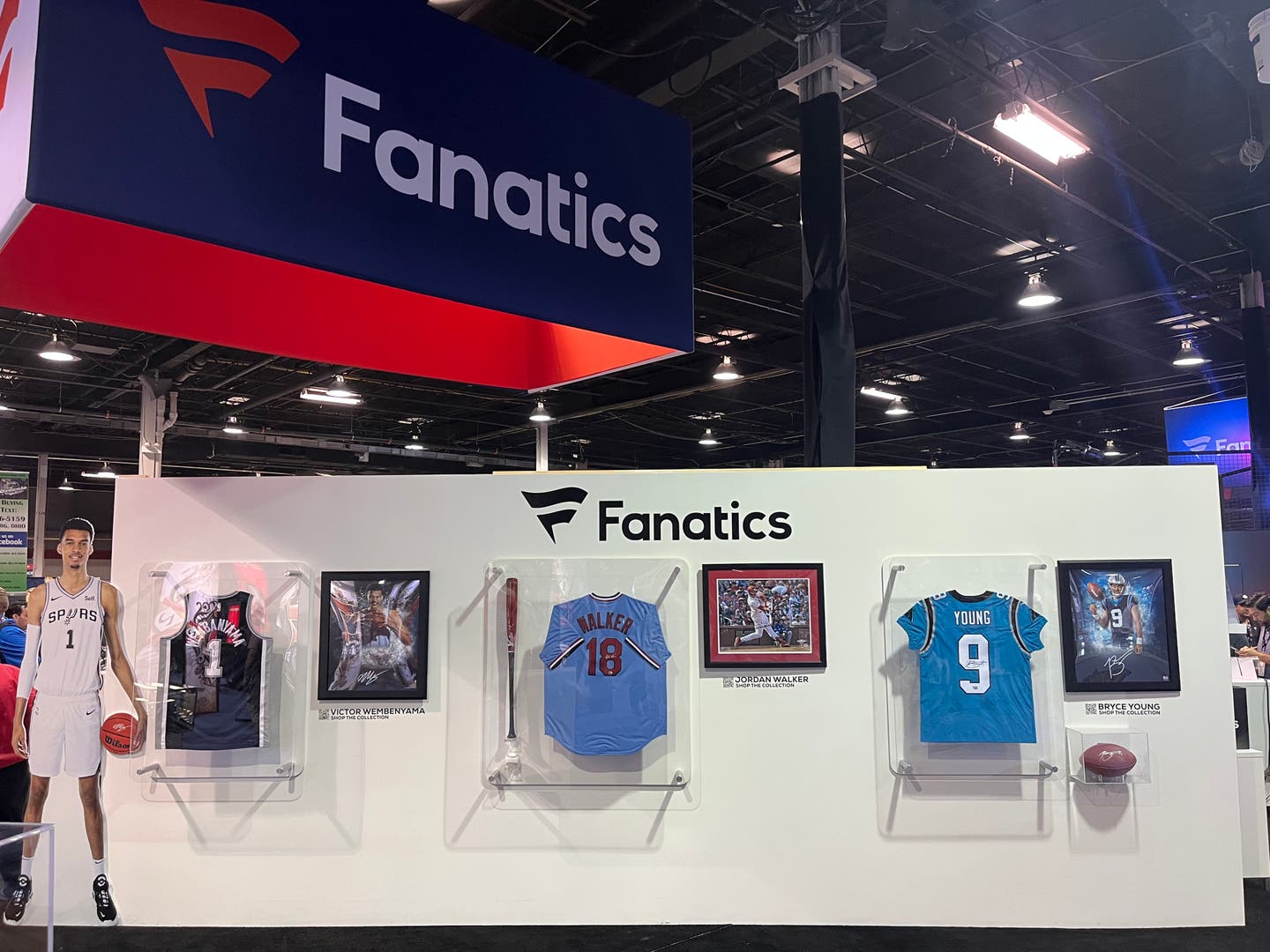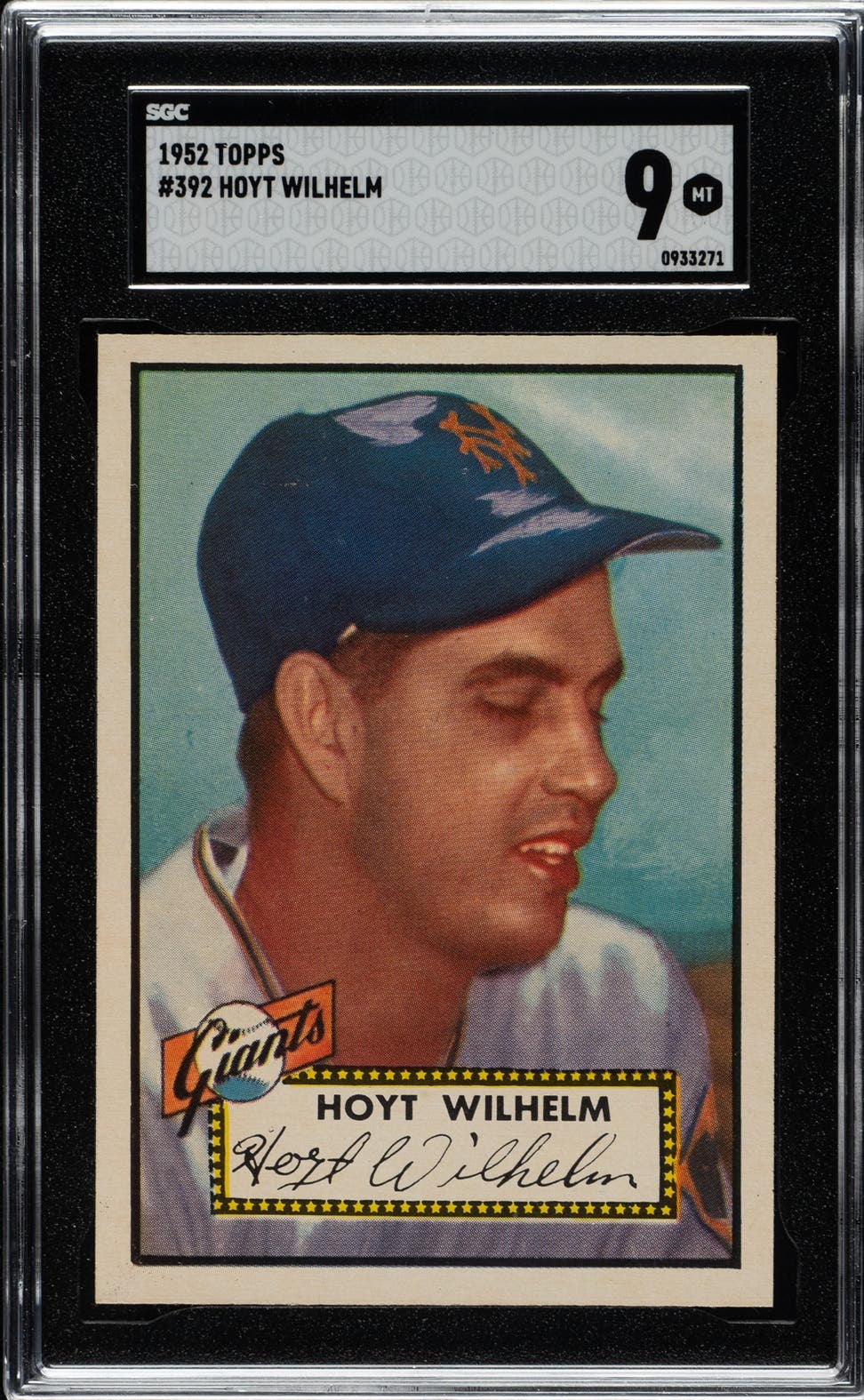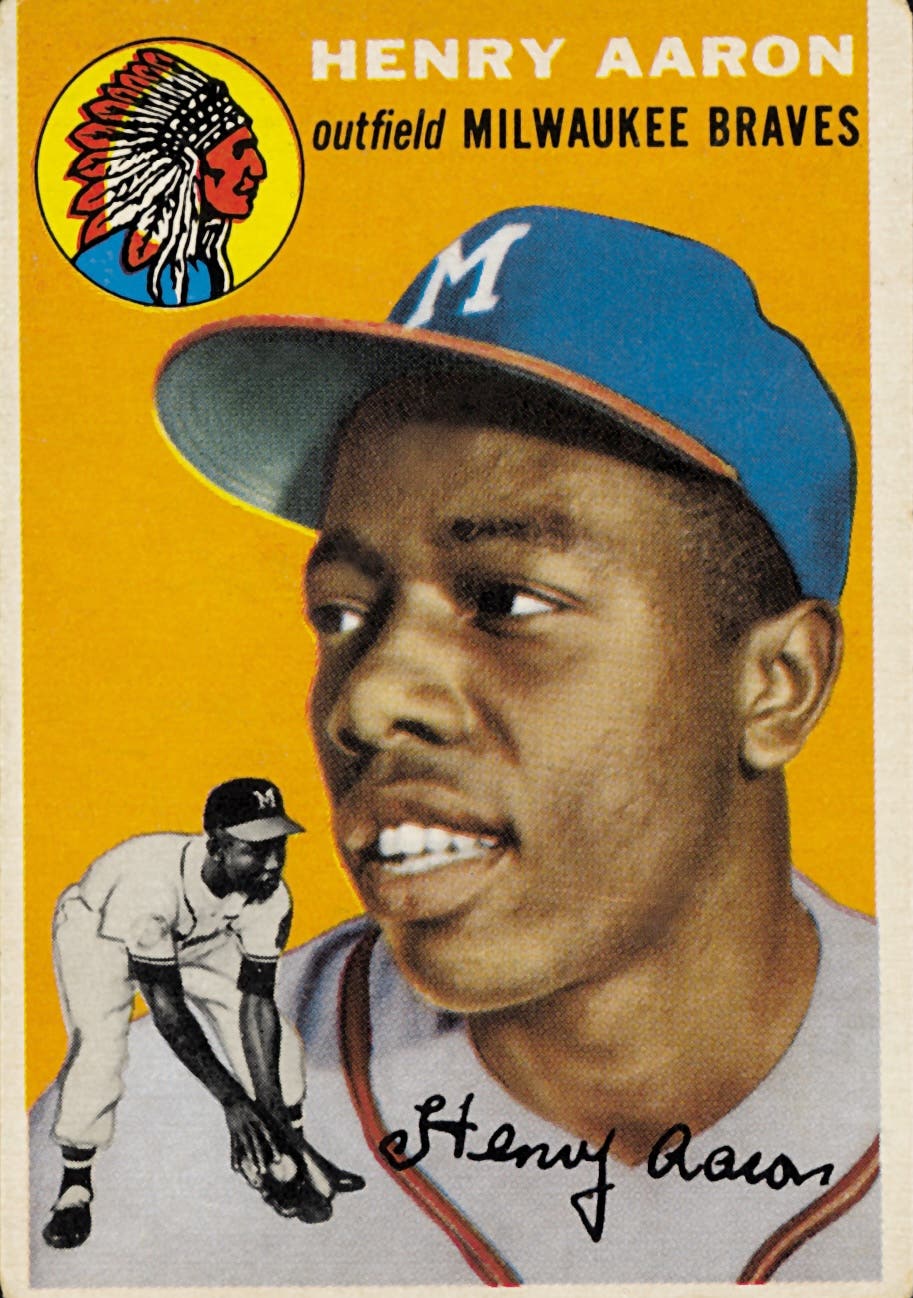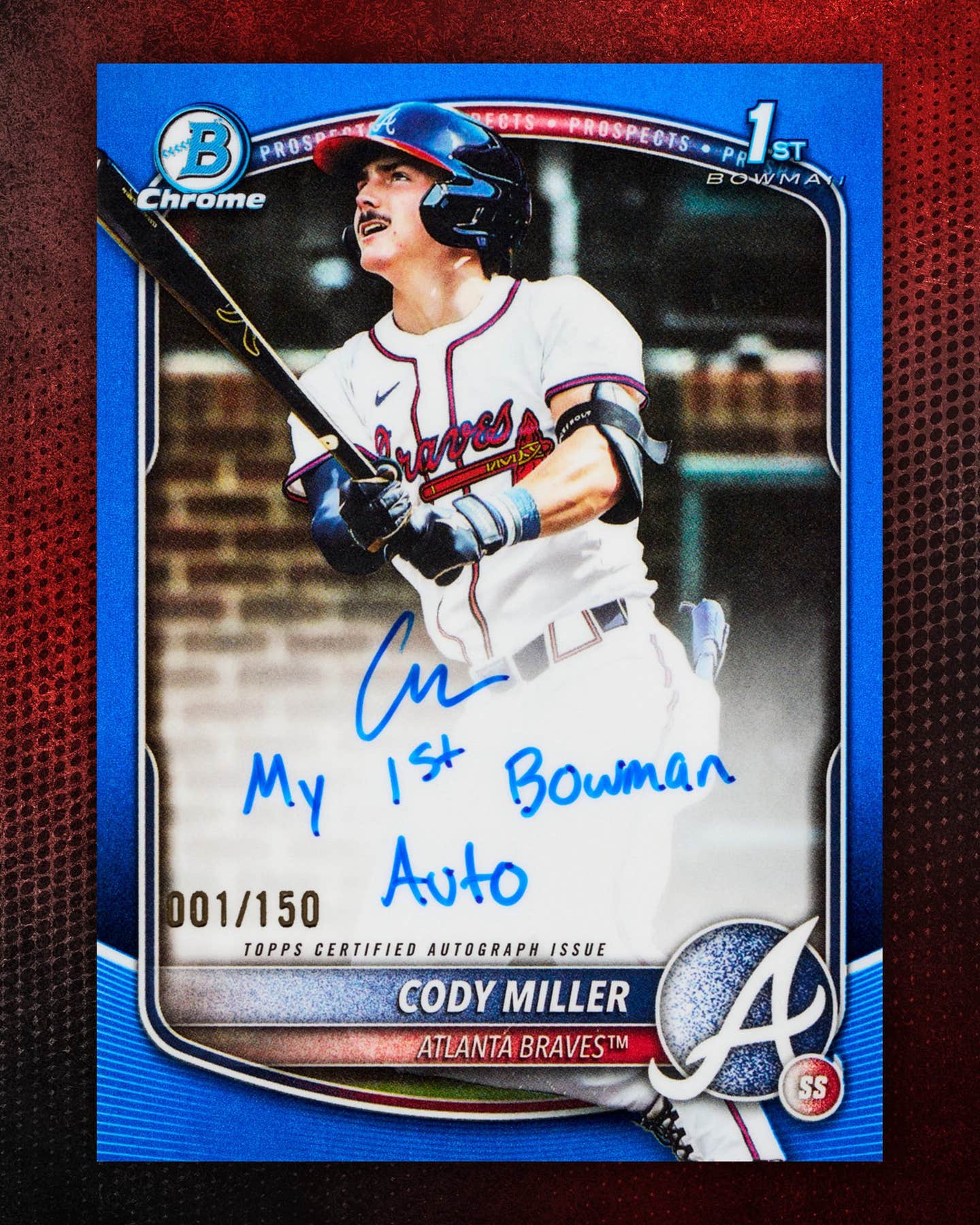
News
Fanatics files countersuit against Panini, reveals negotiations to acquire sports card licenses
Fanatics has filed a countersuit against Panini, calling the card manufacturer’s antitrust lawsuit “baseless” and “incoherent” and revealing Panini’s attempt to sell the company’s NBA and NFL licenses to Fanatics last year.
Panini filed a federal antitrust suit against Fanatics last week, alleging “Anticompetitive Conduct to monopolize the markets” for trading cards licensed by U.S. professional sports leagues.
“In short, Fanatics seeks to cripple Panini both for the short term — the remaining years on Panini’s current exclusive license agreements — and the long term.”
Fanatics responded on Monday by filing a strongly-worded countersuit in U.S. District Court in New York. The suit refers to Fanatics Collectibles as “the innovative disruptor,” while labeling Panini “the stagnant, long-time incumbent.”
“Because it can’t compete with Fanatics fair and square, Panini has been out to sabotage Fanatics through unfair and illegal means,” a Fanatics source said. “We set forth in our complaint how Panini has been resorting to one dirty trick after another to hold Fanatics back — trying to dupe and stall Fanatics with bad-faith negotiations, falsified revenue projections, and heavy-handed efforts to intimidate and even sue former employees who left Panini to find a better future and more inclusive workplace at Fanatics.”
In 2021, Fanatics was granted the exclusive licenses to produce NBA and NFL trading cards when the current contracts with Panini expire in 2025 and 2026. Fanatics was also granted the MLB license to produce baseball trading cards, which it executed after purchasing Topps for $500 million in early 2022.
Its suit against Panini claims that while Fanatics Collectibles is “revitalizing the sports and entertainment collectibles industry” … Panini ”has become complacent, failing to invest in marketing or innovation as it funnels profits back to its owners in Italy while openly trying to sell its business for nearly a decade.
“As Panini’s licensing deals neared expiration, licensors unsurprisingly chose Fanatics Collectibles as their new licensee that would commit long-term to the business, unlike Panini’s strategy of siphoning cash to its Italian owners.
“This case is about Panini’s protracted campaign to squeeze the last dollars from its U.S. business by trying to block Fanatics’ hard-earned success through a series of tortious, unfair, and unlawful actions.”
Fanatics claims that Panini’s failure to invest in its business and the sports collectibles hobby “yielded a track record of dismal customer service, quality control issues, shoddy product offerings, an enormous amount of outstanding redemption cards, and missed opportunities to grow revenues [which would be shared with the players’ associations and leagues] through secondary sales and by capitalizing on new phenomena such as ‘card breaking.’
“That juxtaposed with Panini’s embarrassing track record of dismal customer service, heavy reliance on the use of redemption cards [enormous amounts of which remain unfulfilled], egregious quality control issues, shoddy product offerings, and pervasive underinvestment — all while Panini put itself up for sale throughout the majority of the last decade.”
Fanatics claims that Panini’s “lack of vision and neglect of its obligations to both licensors and customers” not only caused its licensors to suffer from lost opportunities, but “Panini’s pursuit of short-term profits, underscored by its corner-cutting, has also left collectors long-dissatisfied.”
Fanatics claims that after it was granted its future trading card licenses by the NBA and NFL, “Panini’s Italian owners embarked on a protracted, unlawful, and deceitful campaign of unfair trade practices, strong-arm tactics, and tortious misconduct to hamper Fanatics Collectibles’ nascent business, in the hopes that it could force Fanatics Collectibles to pay an extortionate amount for Panini to terminate its licenses early, even though early termination would inure to the benefit of collectors and licensing partners — and Panini — alike.”
Fanatics accuses Panini of providing falsified earning projections “to bait Fanatics Collectibles into continuing sham talks of terminating Panini’s Licenses.”
“When that failed to work,” the Fanatics suit says, “Panini switched tactics and began a campaign of harassment in the courts.”
Panini filed suit against Fanatics earlier this year over the hiring of nearly three dozen of its employees. But Fanatics claims those were “at-will former employees, who did not have non-compete restrictions.”
The suit reveals that Fanatics and Panini agreed in principle to terminate Panini’s licenses early beginning on July 31, 2022, allowing Fanatics to accelerate the licenses it had been granted by the NBA and NFL. In exchange, Fanatics would pay Panini an early-termination fee based on Panini’s projected earnings.
Fanatics claims, however, that Panini dragged out the early termination negotiations “in bad faith by slow-walking negotiations for several months and ultimately trying to pass off knowingly inflated earnings projections that translated to an unreasonably high early-termination fee.”
Fanatics claims that because of Panini’s “deceit,” Fanatics Collectibles lost valuable opportunities and resources and “spent tens of millions of dollars paying lawyers, accountants, and other professionals for their advice, negotiation, preparation, and diligence related to the transaction.”
Fanatics claims that Panini knew early termination would never happen because “Panini would never be willing to agree to a termination fee that matched its own accurate, real-world earnings projections.”
“In the end, Panini’s purported moves towards reaching agreement on early termination were a series of head-fakes — an unfair tactic and a bid to advance its position through subterfuge rather than good old-fashioned competition,” he suit says.
Fanatics calls Panini’s antitrust suit “baseless” and “incoherent.”
“Not only is the lawsuit littered with factual inaccuracies, but Panini’s own licensing practices and experience as the longstanding incumbent presiding over multiple, overlapping exclusive licenses with players’ associations and leagues give the lie to any allegations that it is now an antitrust victim,” Fanatics states in its suit. “The antitrust laws protect consumers, not entrenched incumbents like Panini who wish to avoid competition from new innovative entrants like Fanatics Collectibles.”
Fanatics claims that Panini built its business through a series of long-term exclusive contracts.
“It is hypocritical for Panini now to suggest that Fanatics Collectibles violated the antitrust laws simply because the players’ associations and leagues chose to license their intellectual property to Fanatics Collectibles as opposed to Panini,” Fanatics says.
The lawsuit further states that Panini’s legal strategy is “an admission of its ineptitude.”
“Rather than elevating the collector experience, granting licensors access to downstream opportunities, or improving the broader industry, Panini is trying to undermine its competitor through unfair tactics so that it may continue to treat its American subsidiary as an ATM serving its private owners in Italy.
“But Fanatics Collectibles will not be bullied. Fanatics Collectibles has nothing to fear from the baseless litigation that Panini has brought.”
Jeff Owens is the editor of SCD.








